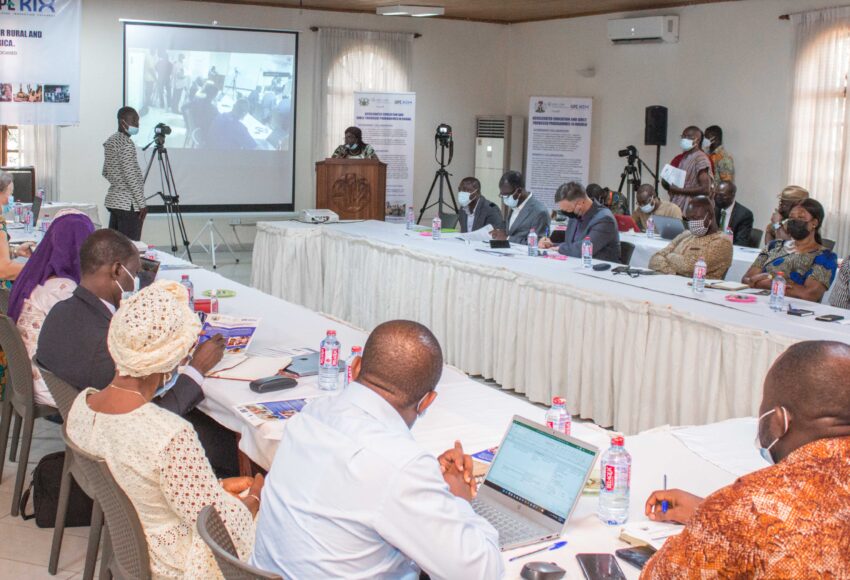
- May 11, 2022
- 0 Comments
- 5220 Views
- 0 Likes
- Research Works
ACCOUNTABILITY IN EDUCATION
Annual Presentations on the Education Sector Budget to Parliament of Ghana (2012, 2013, 2014, 2015, 2016 and 2017)
Parliamentary Services, under the leadership of Parliament of Ghana organize an Annual Post Budget Workshop where various specialists and experts conduct a review of the proposed budget in order to inform Parliament of the strengths and weaknesses in the various sectors of the economy. Under the able leadership of Dr. Leslie Casely-Hayford, the Principal Consultant of Associates for Change, we have been conducting the education budget analysis over the past 6 years and making presentations to Parliament and its subcommittee in the education sector. The education budget analysis entails: an analysis of the implementation of the previous year’s budget related to the education sector, reviews the budget trends, provides a quick overview of the performance in the education sector and presents key issues and challenging questions to consider in analysis of the proposed budgets (e.g. strengths and weaknesses, policy alignment and focus). The analysis also reviews the budget gaps and key recommendations to the Parliament of Ghana.
2015,2016,2017 Report
LCD Education Programme Evaluation "Strengthening the Chain of Accountability to Improve Quality and Performance in Ghanaian Primary Schools: Impact Evaluation of the Link Community Development, sponsored by VSO (2009)"
AfC conducted an impact assessment of the work of VSO’s partner, Link Community Development (LDC), in the Upper East Region of Ghana. LCD focuses on improving quality of education through improving accountability, data management and governance mechanisms at district and community levels. This evaluation required that AfC train 10 researchers in the Upper East to interview and conduct a social audit at district level in consultation with district assemblies/ other agencies and departments concerning the performance of LCD and its partners. Beneficiary assessments were conducted with over 15 communities across three evaluation districts in the Upper East Region.
Final Report, Synthesis Report
